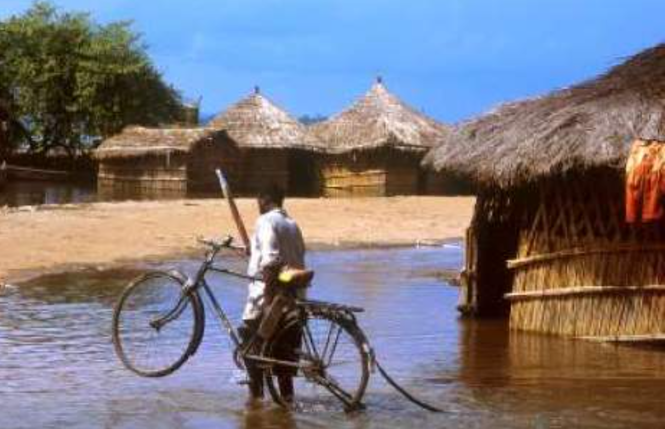
A new report, “Disasters in Africa – the case for legal preparedness,” has been published by the International Federation of Red Cross and Red Crescent Societies. The report explores how strong disaster laws can reduce the impacts of natural disasters in Africa, a continent that is particularly vulnerable due to widespread poverty and a high level of communicable diseases, and in addition faces an increased level of drought and flooding, not at last due to the effects of climate change.
The report first looks at how laws can promote community action to reduce the impacts of disasters, drawing on the example of South Africa. Furthermore, the report explains the important role that laws play in clearing the way for international relief after a natural disaster has struck, presenting a case study of floods in Mozambique. Finally, the issue of regulatory barriers to emergency and transitional shelter in the aftermath of a disaster is addressed. A case study of the large-scale displacement in Kenya after the 2007 violent clashes shows how legal barriers to reclaiming land and property, or obtaining compensation for the loss of land, can eventually keep people from returning to their homes and be provided with adequate shelter.
The report ends with a set of recommendations on how to improve laws in order to meet the challenges faced in the three areas addressed.
See the full report here.